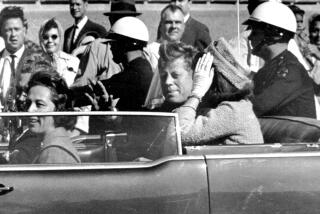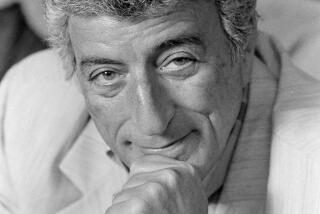How President Kennedy Decided the Fate of Pvt. John Bennett
- Share via
I read with interest Richard A. Serrano’s article regarding the execution of Pvt. John Bennett (“The Last Military Execution,” Sept. 10). I am the White House staff member referred to in the article and would like to comment on it.
Although President Kennedy’s decision occurred nearly 40 years ago, I have a clear recollection of how it was handled. The implication that President Kennedy was preoccupied with other matters at the beginning of his administration, and treated Pvt. Bennett’s case casually or cavalierly, is simply not correct. When the question of the scheduled execution came to Maj. Gen. Theodore Clifton, the president’s military advisor, he brought the file material to me. After discussing it thoroughly, we arranged to meet with the president. In a lengthy session lasting over an hour and a half, he read some of the file material and peppered us with questions. He asked that we obtain additional information, including psychiatric evaluations, and get back to him.
After about six weeks, Gen. Clifton and I met with the president again. I recall how amazed I was that he had retained virtually every fact and point we had gone over in the first meeting. He examined the new materials, discussed them extensively, stood up, paced for a bit, and then said that he was not going to reverse President Eisenhower’s decision. Clearly it was not an easy decision--how could it be when a human life rested on that decision? Although I did, and do today, oppose capital punishment, I wrote in my memorandum to the president, as described by Serrano, that despite the fact that the victim did not die, the crime was so heinous that execution was appropriate. President Kennedy made his decision after careful and deliberate consideration.
Lee C. White
Washington, D.C.
More to Read
Get the L.A. Times Politics newsletter
Deeply reported insights into legislation, politics and policy from Sacramento, Washington and beyond. In your inbox twice per week.
You may occasionally receive promotional content from the Los Angeles Times.










